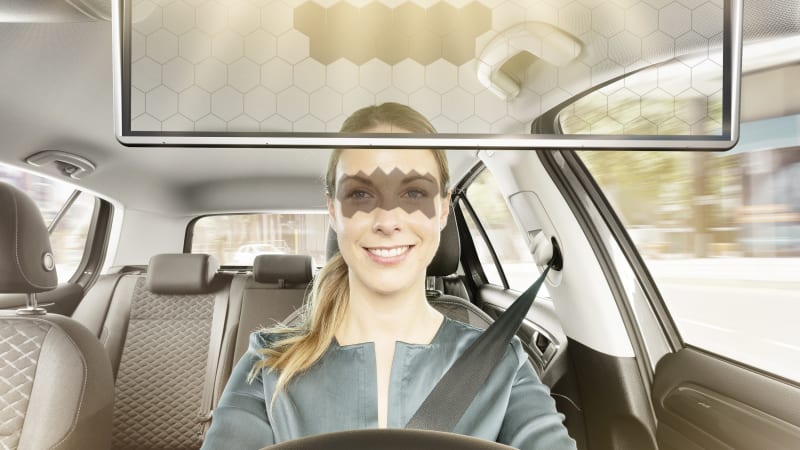
German supplier Bosch traveled to CES 2020 to introduce an artificial intelligence-powered sun visor called Virtual Visor. It’s a major update to a part that has barely evolved in the history of the car.
The Virtual Visor takes the form of a rectangle that swings down from the headliner to block sunlight, but the similarities between it and the sun visor in your daily driver stop there. It’s a transparent LCD screen that uses an occupant-monitoring camera to track shadows across the front passengers’ faces. Artificial intelligence then identifies facial features, like the nose, the ears, and the mouth, and uses this information to tint only the parts of the visor through which sunlight hits the passenger’s eyes, creating a shadow that looks like a robotic Venetian mask. The rest stays transparent.
While this innovation sounds relatively minor compared to the massive changes sweeping across the automotive industry, Bosch predicted it will have a major effect on safety, especially at dawn and at dusk. The company’s research found the sun’s glare causes nearly twice as many accidents as other weather-related conditions, and statistics from the National Highway Traffic Safety Administration (NHTSA) back up that assertion. The agency annually blames thousands of accidents on the sun.
Interestingly, Bosch didn’t begin the project by throwing millions of development dollars at it. The supplier explained the idea came from three forward-thinking powertrain engineers who built the original prototype with an LCD screen they found in a trash bin. Executives liked what they saw, so they gave the group the proverbial green light, and much-needed resources. While the Virtual Visor is still at the concept stage, and its implementation in a production car depends on automakers, Bosch told Autoblog it’s talking with manufacturers about bringing the technology to production.
